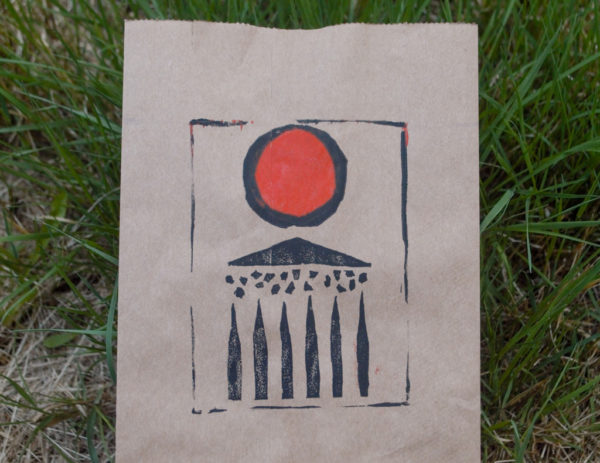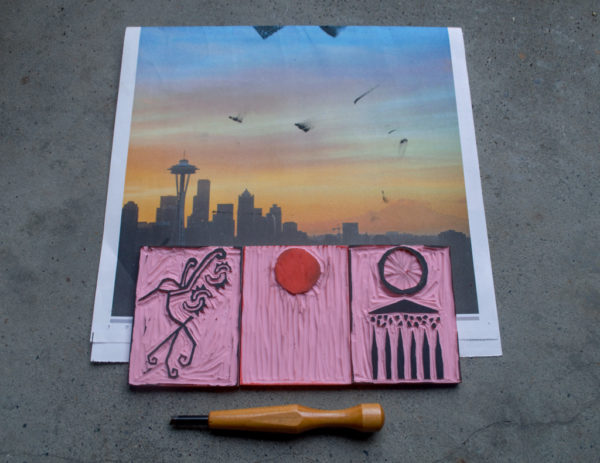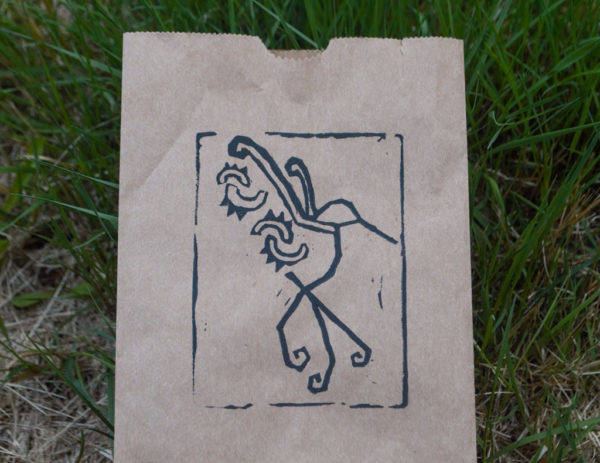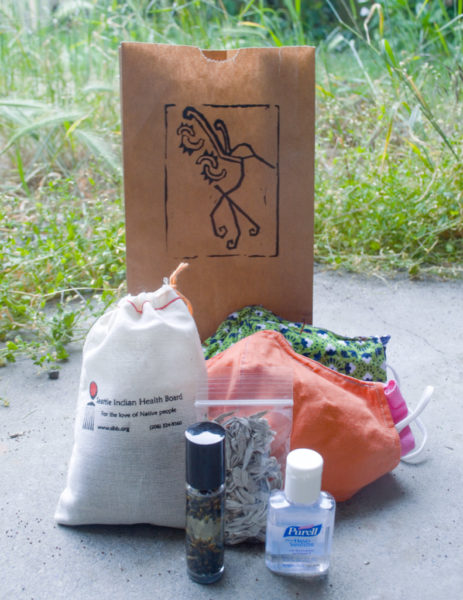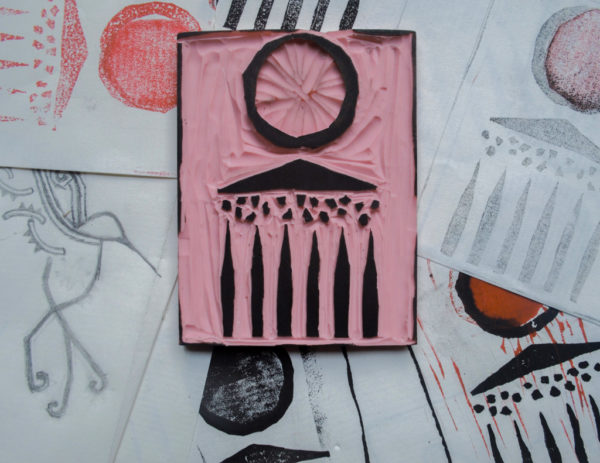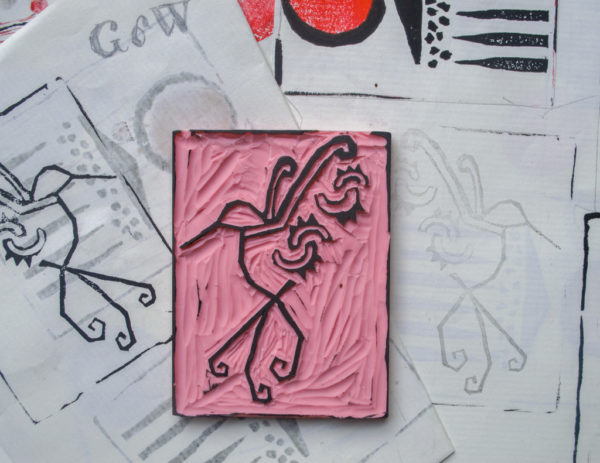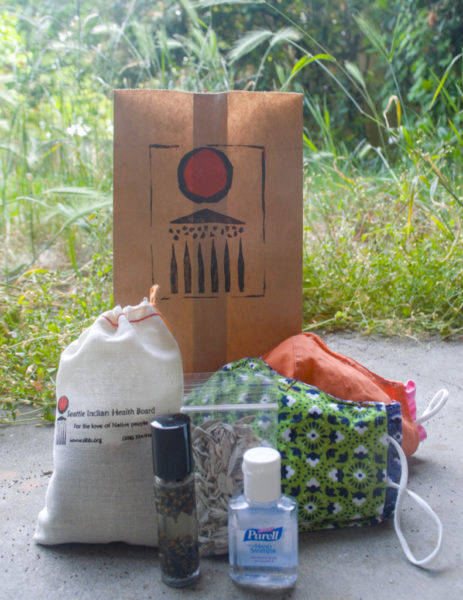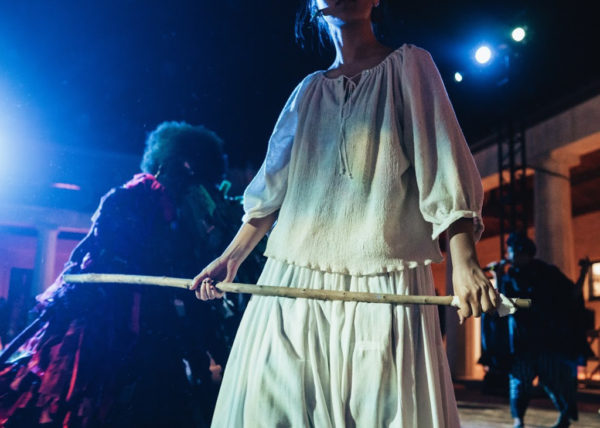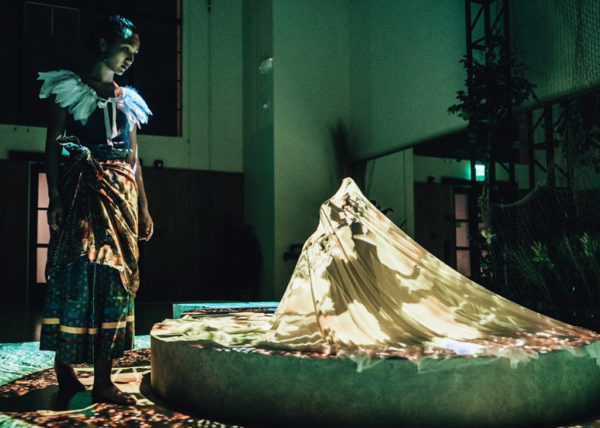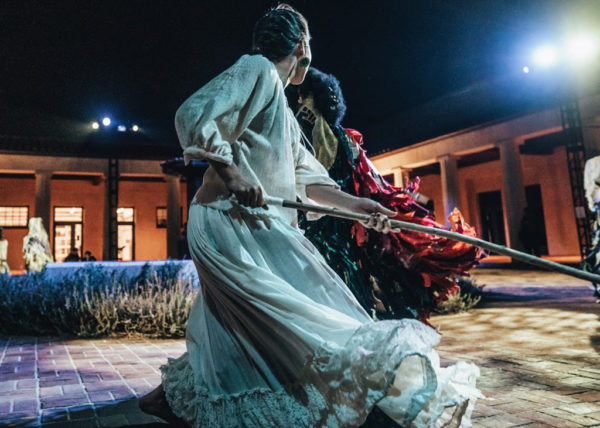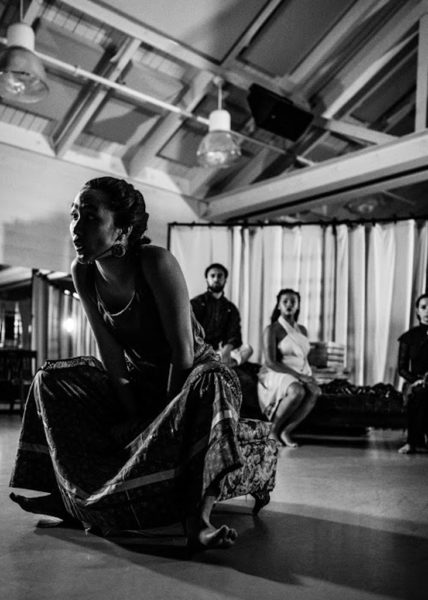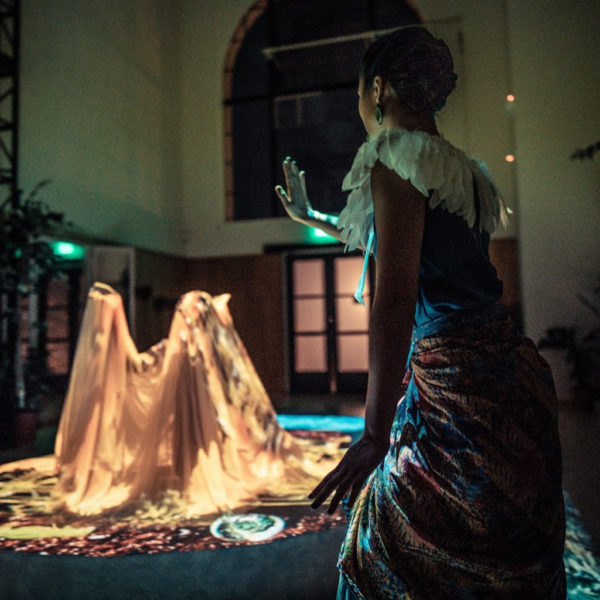Rachel Lam
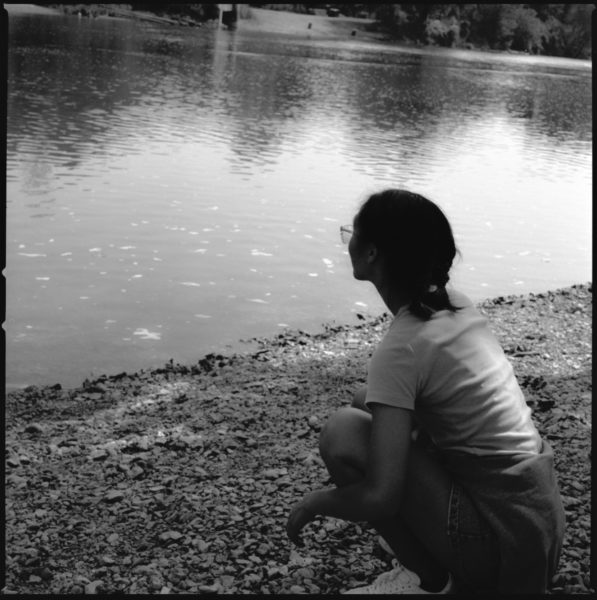
Photo by Jacob Chavez, 2017.
Artist Statement
Rachel Lam (any pronouns) is an artist who works with visuals, sounds, words, and movement. The following is an introduction for themselves in Giduwa:
"Letsili dagwado'a. Tsigiduwagi nole tsitsaniyi-aniugama nole tsiyunega. Seattle digwatvsv'i. Nigalsdanv'i sidanelvi. My name is Rachel. I'm Anigiduwagi enrolled Cherokee Nation of Oklahoma, white, and a first-generation Malaysian-American. I grew up in Seattle. As it happens into the future, I'd like balance."
The Giduwa language is important to Rachel's art practice because of how it helps her process the world. Language is the blueprint to a culture's philosophy, and though Rachel is and will remain proudly multi-cultural, Giduwa philosophy is a centering force to their life.
Through it, Rachel understands that no one but Creator can actually create anything. Everyone alive, for however long their visit ends up being, is simply at play within Creator's world and fiddling with already existing creations.
Rachel hopes that their visit will be long, that he can be as respectful as possible while here, and that she will have very enjoyable times!
Bio
Rachel is a 2019-2020 IDA Fellow. This year, they were the Teaching Assistant for the First Year Giduwa Language program. He co-led an Alternative Spring Break program about Giduwa language revitalization through children's books. She participated in two main art endeavors: the Seattle Indian Health Board's Brown Medicine Bag Project and a multimedia multisite experience called REVIVAL: Millennial reMembering in the Afro NOW.
Rachel will graduate this spring with a degree in Psychology and was awarded a Lyric McHenry Community Arts Fellowship for the summer. They will be co-writing and illustrating materials for Giduwa language learning targeted towards children during the fellowship.
Fun Facts
- If you come to the annual Seafair Powwow in Seattle, you'll most likely see Rachel's brother, her sister, and her helping Colville elder Randy Lewis with the salmon bake.
Brown Medicine Bag Project
Project Description
The Brown Medicine Bag Project was developed at the Seattle Indian Health Board by Lorna Squetimkin (Colville) and its Traditional Health department in the Spring of 2020.
This project is a response to the COVID-19 pandemic and its effects on Indian Country --- in particular, its impact on the homeless urban Indigenous community in Seattle. Each paper bag is stamped and filled with sage, hand sanitizer, masks, and other important tools or medicine for protection against COVID-19.
Rachel was asked to carve the Seattle Indian Health Board logo onto a stamp as well as design an animal for a separate stamp. For the animal stamp, Rachel chose Walela, known in English as Hummingbird, and consulted with Giduwa relatives in finalizing the design.
Rachel's Thoughts
"I debated for a while trying to decide what animal to carve. I finally decided on a hummingbird because Anigiduwagi elder Tom Belt told me that Walela brought tobacco, a very important medicine, to us (the Giduwa people). It felt right for Walela to continue bringing important tools and medicines to indigenous people."
REVIVAL: Millennial reMembering in the Afro NOW
Project Description
REVIVAL is from current IDA Artist-in-Residence Amara Tabor-Smith, her collaborators, and her students. It is an Afro Futurist, devised dance theater work, inspired by the founding of the Committee on Black Performing Arts (CBPA), which marked its 50th anniversary this year. It was open to the public for three nights during the fall of 2019.
Utilizing the stories and characteristics of the Yoruba deities known as Orisha, REVIVAL is a multimedia and multisite experience exploring the people and events that have catalyzed movements for social change through time.
A non-linear narrative, REVIVAL is driven by the core question, what parts of our myths and stories do we choose to recall, remember and re-invent in order to carry us forward repaired, restored and revived?
Rachel's Thoughts
"I keep a lot of memories close to my heart. From REVIVAL, I hold three tightly:
The first is dancing with Seital three embodied land acknowledgements.
The second is asking the different audiences questions in Giduwa: Do dehigotiha? Dehigotihvi?
Asking those questions and seeing the audience react to hearing native language -- pride, embarrassment, laughter, blankness, yearning, shock, discomfort, and sly amusement. Seeing many of them realize they didn't know any native languages and that this is all native land...
The last is ulosvsdi agilvhi nole agitsi otsalsgisgvi."
Reccomendations by the Artist
- If you go to Malaysia, eat some roti canai at Raju Restaurant at 27, Jalan Chantek 5/13 in Petaling Jaya.
- Read the full version of "A Mi'kmaq Responds to the French."

